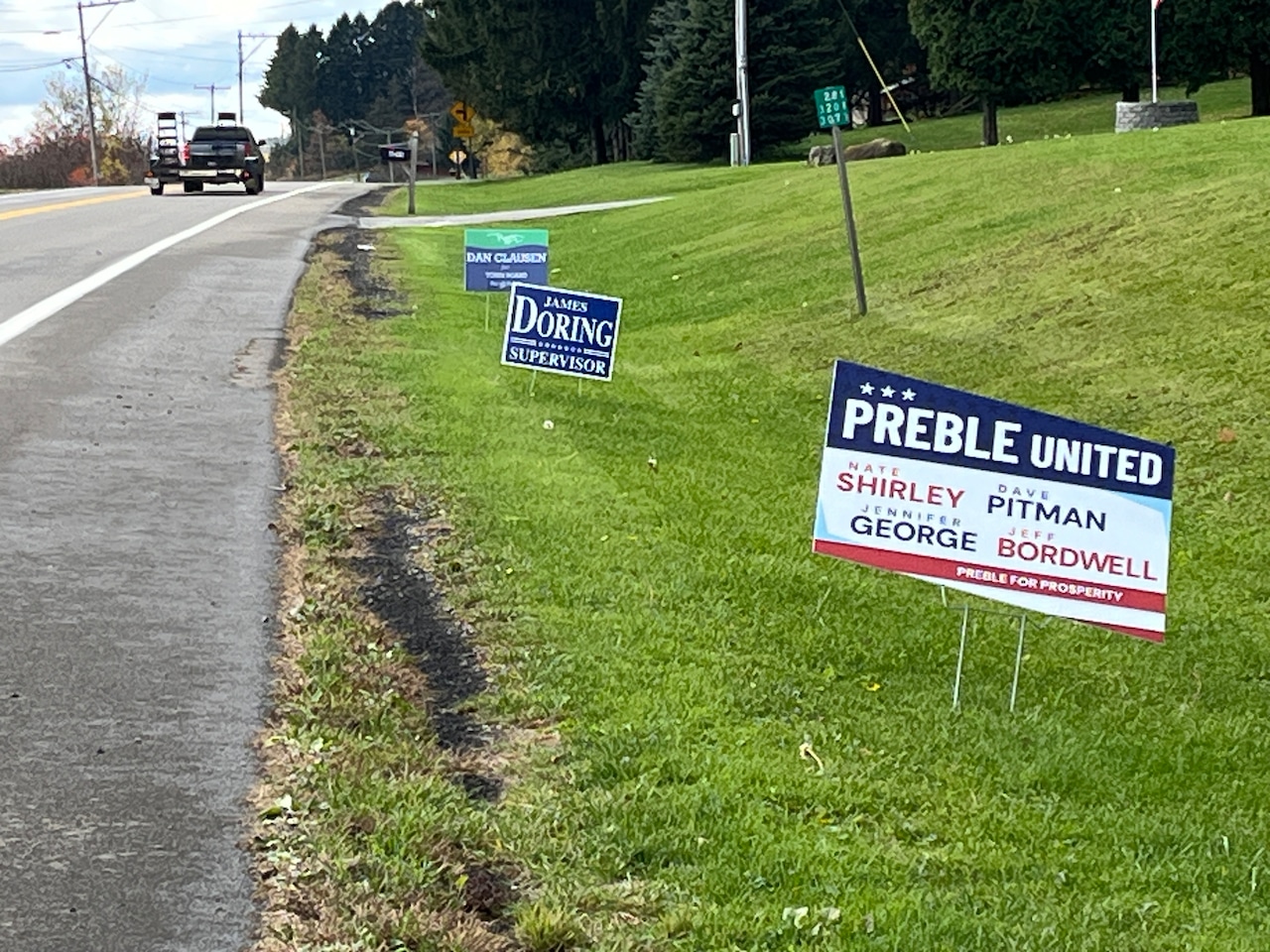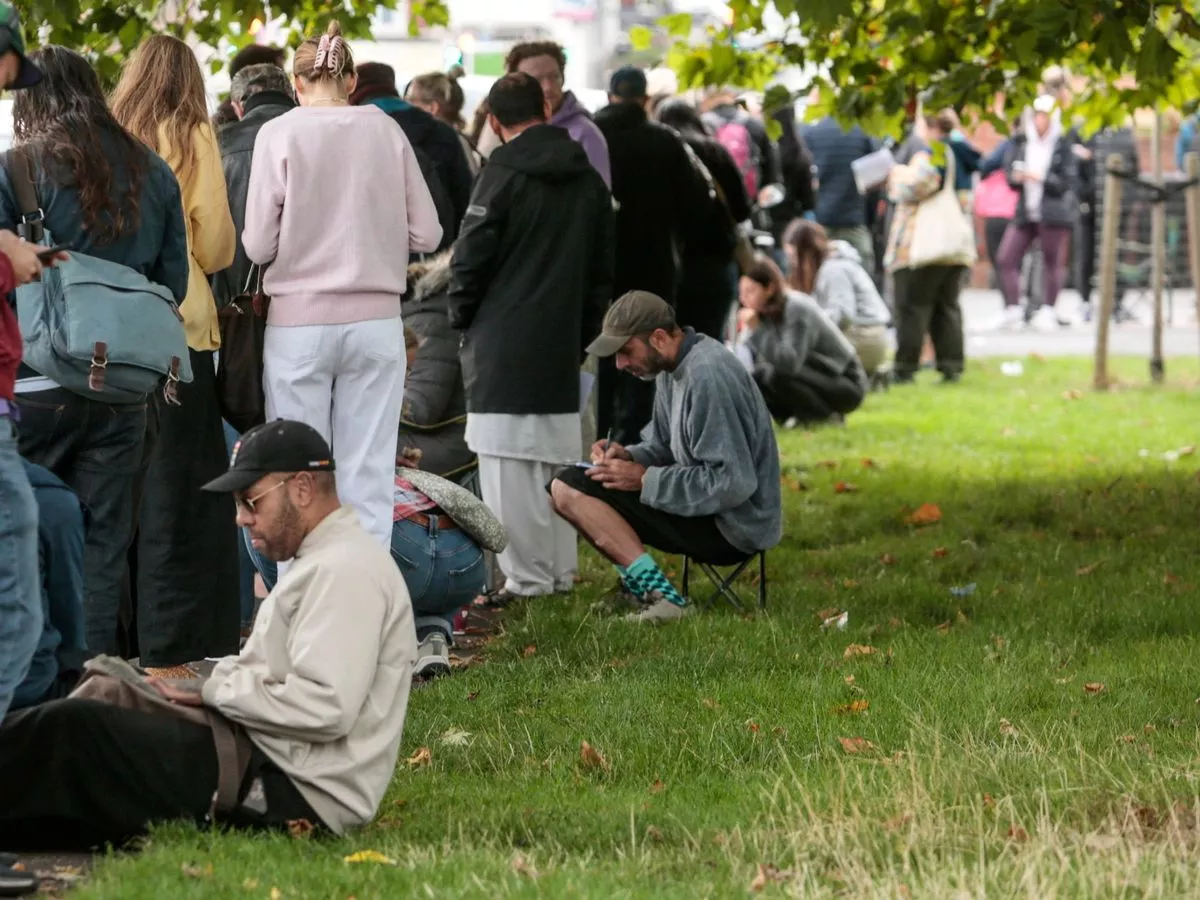Copyright syracuse.com

Preble, N.Y. -- In the small lakeside town of Preble, a fight over short-term rentals has become the hot-button issue at the ballot box. Signs promoting candidates for and against vacation rentals have popped up along Song Lake and throughout Preble, which has about 1,200 residents. “It’s become more and more contentious, with battle lines being drawn,” said Preble Town Supervisor James Doring. The future of short-term rentals has become the unwritten referendum in Preble’s Nov. 4 elections. Three seats on the five-person board are up for grabs, and the winners could have the power to decide the rentals’ fate. The debate has turned things upside down, politically and personally for some. Doring, the Republican supervisor for 16 years, is running on the Democratic line. He lost GOP support earlier this year, partly because he wants to ban the rentals. Instead, Nate Shirley, who owns a rental in nearby Tully, is running on the Republican line and the “Preble for Prosperity” line. It’s a new group that aims to keep allowing Airbnb and vrbo hosts renting lakeside properties. Shirley said he believes the board has been pushed by a small, but vocal minority of residents who don’t want the short-term rentals. “They don’t believe in individual property rights, and I do,” he said. The fight has already been to court, and the renters won. A state judge ruled earlier this month the town board didn’t follow the correct steps when imposing the ban on short-term rentals around Song Lake, Tully Lake and Little York Lake. But that hasn’t stopped the controversy. And whether the town appeals will largely depend on who wins the election. Greg Miller, who owns a rental property on Song Lake, is one of seven short-term rental owners who sued the town this year to reverse the ban. “People are up in arms over this, and with each other,” Miller said. “That’s disappointing.” Doring and others interviewed agree the tensions between neighbors and residents are getting tough to bear. “People who have been here for generations are saying you can’t tell us what to do with our property.” Doring said. But the town did try. ‘It’s bothersome’ The town took up the idea of a ban after a resident complained at a meeting that short-term rentals violate lakeside zoning. The person had a point: the town’s zoning prohibits commercial enterprises near the lake. Yet the renters have argued they aren’t operating businesses. Joe Heath, a lawyer who lives on Song Lake and is an advocate for those against the short-term rentals, disagrees with the judge’s ruling. He believes the zoning is clear, and the short-term rentals are in clear violation. But he said the judge focused on procedural issues instead. Plus, Heath said, the rentals run by out-of-town owners create the most problems. That includes issues with parking, trespassing, noise and even a tour bus parked for some time in a residential driveway. Still, the rentals stayed in business and the issue kept simmering. More residents complained about loud parties, extra cars and weekend disruptions in a place where lakes are ringed with a mix of primary homes and family-sized summer retreats rather than hotels and restaurants. Other places have placed restrictions on short-term rentals, from New York City to Central New York, including in Liverpool, Cazenovia and Camillus. Skaneateles has imposed tight restrictions. Alfred Socha, another Song Lake resident, has lived in his home for 24 years and now has rentals on both sides of his home. “The problem is folks come in for a weekend and party,” he said. “It’s bothersome,” Socha added. “These people are vacationing, and these are our homes.” Preble’s attempts at a ban Preble first enacted a moratorium on new short-term rentals in 2023. The town board then went through several proposals for more permanent bans, from allowing existing Airbnbs to adding broader restrictions on all such rentals. Last year, the board floated a proposal to allow existing short-term rentals along the lakes to operate for another three years and ban any new ones from opening. The Cortland County Planning Board disagreed with the town’s idea. And without that endorsement, the town board needed a supermajority to pass the ban. The town voted in December to pass the ban 3-2, short of the supermajority. Two weeks later, the town’s attorney came up with a different interpretation and declared the vote sufficient to enact the ban. That’s when the short-term rental owners sued. A win in court The 29-page state Supreme Court decision issued earlier this month didn’t address the merits of short-term rentals or the town’s current zoning. Instead, Judge Elizabeth A. Burns focused on the steps the town followed - or didn’t follow - in passing the ban. That’s what the lawsuit challenged. The judge agreed with the plaintiffs that board failed to follow the prescribed steps for enacting the new law. The judge also ruled the town didn’t conduct a proper environmental review as required by law. On Oct. 3, the court threw out the ban. What’s next Now, the election may decide the next step. If Shirley and town board candidates Jeff Bordwell and Dave Pitman win, they will likely have enough votes on the board to keep the rentals in business. If Doring, who says he has no intention of joining the Democratic Party, pulls off a win with candidate Dave Clausen, the board will likely appeal. There are just 990 registered voters in Preble: 389 Republicans, 259 Democrats and 273 who are unaffiliated, according to the Cortland County Board of Elections. It all leaves residents like Jerome Mitler worried about next summer. He’s lived on Song Lake since 1977 and says he now has to put up with cigarette butts and dog waste on his property from short-term renters. “We are being invaded here,” he said.



